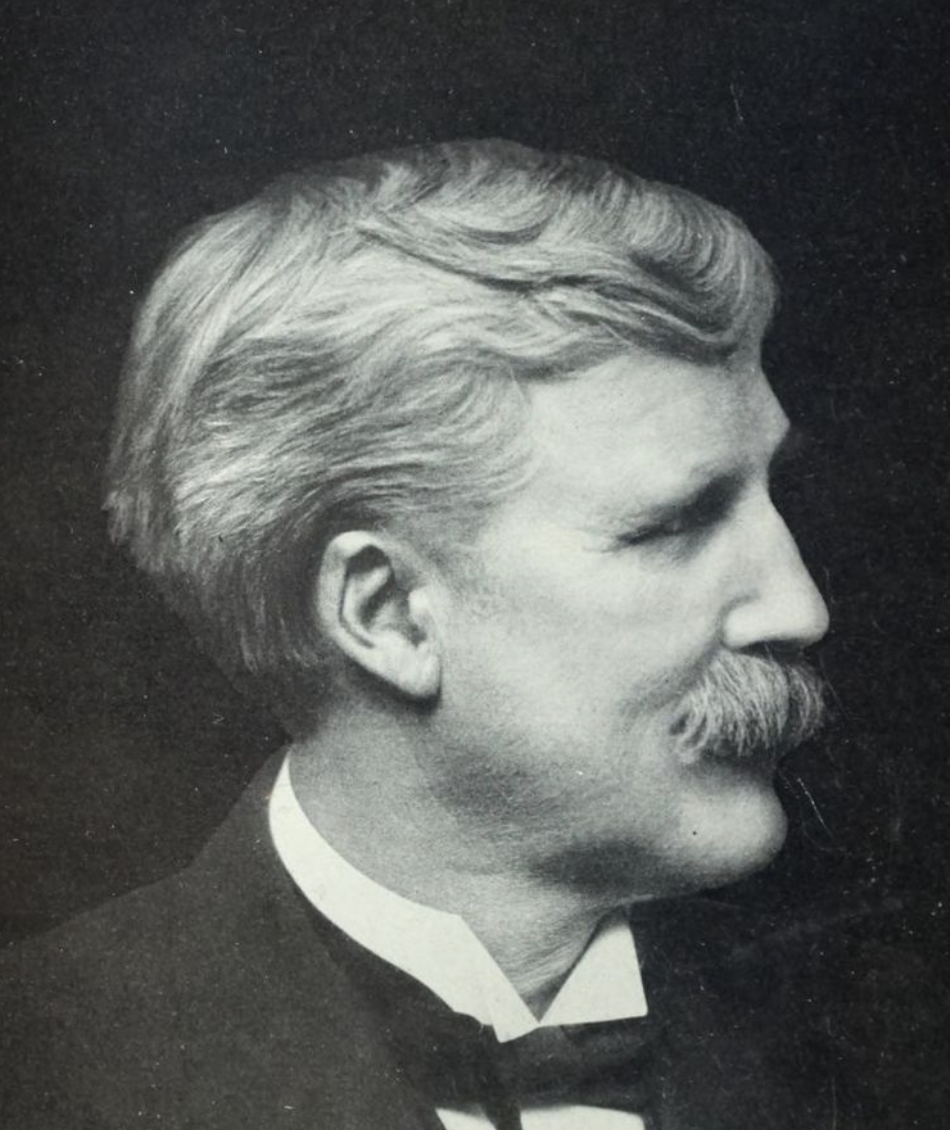Our children were all born into a Baptist family, although our early ancestry on both sides in this country was wholly Pilgrim and Puritan, with a slight later influence of New Hampshire Scotch Presbyterianism. We happen to have been born Baptists only because about 1760, five generations before our time, a direct ancestor, Levi Gates, of East Haddam, Connecticut, born a Congregationalist like all his Gates forebears, became an ardent Baptist. His children adopted, of course, their father’s religion, and the successive generations brought the Baptist faith to my father and to me. All our five generations of Baptists were intelligent believers in their creed. They could give convincing reasons drawn from the inspired New Testament for the faith that was in them, and to tell the truth, they were rather fond of doing so. Granted the authenticity of the texts of Scripture on which they based their contention, the authority of which nobody then thought of questioning, their reasoning was irresistible. On the premises then everywhere accepted, namely, the verbal inspiration of the New Testament as it stands, they were right.
The mistaken religious training of my boyhood gave me a deep dislike for the Puritan orthodoxy. Dr. Anderson’s influence in college tended to discredit all theology and to exalt practical Christianity instead. In the Theological Seminary my Hebrew studies raised doubts of the inspiration, the historic truth, and the morality of the Old Testament teachings. These doubts were by no means dispelled by the classroom rebukes of my professor. My examination of the Sunday question at Minneapolis, which was my first really independent study of the Bible, was made on modern principles of interpretation. During the three years between Minneapolis and Montclair 1 had little time for religious reading, but was deeply impressed by Matthew Arnold’s Literature and Dogma, a book which, as has been said, no Christian can read and remain the same. When we arrived in Montclair in 1891, I had become liberal in sympathy, without having fully broken with my past.
Without due circumspection we immediately joined the Baptist Church of Montclair, by letter of dismission from Morgan Park. But we were not happy there. The pastor was young, inexperienced, and as a preacher uninteresting and barren. The church was then dominated by several deacons who were not kindly disposed towards the other evangelical churches in town. The resignation of the pastor disclosed the determination of these deacons to secure another pastor as narrow as themselves and, rather than lead an opposition against them, we quietly changed our church membership to the Memorial Baptist Church of Dr. Edward Judson in New York, and took a pew in the Congregational Church of Montclair, then under the ministry of Dr. Amory Bradford.
But in the course of years our theological views underwent a more fundamental change. My release from the absorbing labors of the pastorate and of the Chicago enterprise had given me time for those broader and more critical studies of the Bible, which neither the Theological Seminary nor the pastorate afforded. The higher criticism convinced me that Christ had neither founded nor intended to found the Baptist Church, nor any church; that neither he nor his disciples during his lifetime had baptized; that the communion was not conceived by Christ as a church ordinance, and that the whole Baptist fabric was built up on texts which had no authority, and on ecclesiastical conceptions wholly foreign to the mind of Christ. I am glad to say that views substantially similar to these are now held very widely among Baptists, are taught in nearly all northern Baptist theological seminaries, and are publicly proclaimed by leading Baptist theologians. When from time to time our children became old enough to make an intelligent profession of religion, and desired to unite with the church, we encouraged them to unite with Dr. Bradford’s communion. This we did partly because the Congregational Church of Montclair demands no doctrinal qualifications at all, simply requiring members to seek to exercise the Spirit of Jesus.
During these years Dr. Harper had supplied me with lists of books disclosing the results of the higher criticism, and I turned also to the study of modern science. I came fully to accept the methods and the results of modern Biblical criticism and also the spirit and the results of modern scientific research. But I continued to believe that the love and good-will exemplified in the Spirit of Jesus are the secret of human well-being, and that in this Spirit lies the hope of the race.
In the religious training of our children we introduced our liberal views and avoided the traditional mistakes of our parents. Our family filled two pews at church, much to Dr. Bradford’s delight, for we wished to train the children early in the habit of church attendance. We had daily family worship so long as the family was kept together. We chose only the most precious portions of Scripture, the proverbs and some of the psalms in the Old Testament, the Sermon on the Mount, and the ethical parts of the authentic epistles. During the vacations at Lake George we would occupy the whole of Sunday morning with the practical lessons of the Scriptures. The children had no quarrel with orthodoxy, for they never knew what the repulsive doctrines of orthodoxy were. They were never taught them. The results of the higher criticism they knew. Accepting modern science, they were taught to expect in the books of the Old and New Testament only the ruling ideas of early ages. Each in turn, on reaching the broadened intelligence and quickened feeling of adolescence, saw in the Spirit of Jesus the secret of life, and found a public profession of allegiance to him a perfectly natural thing. And so without one word either from parents or anyone else, each in due time, acting spontaneously, united with the church.
Next Section:
